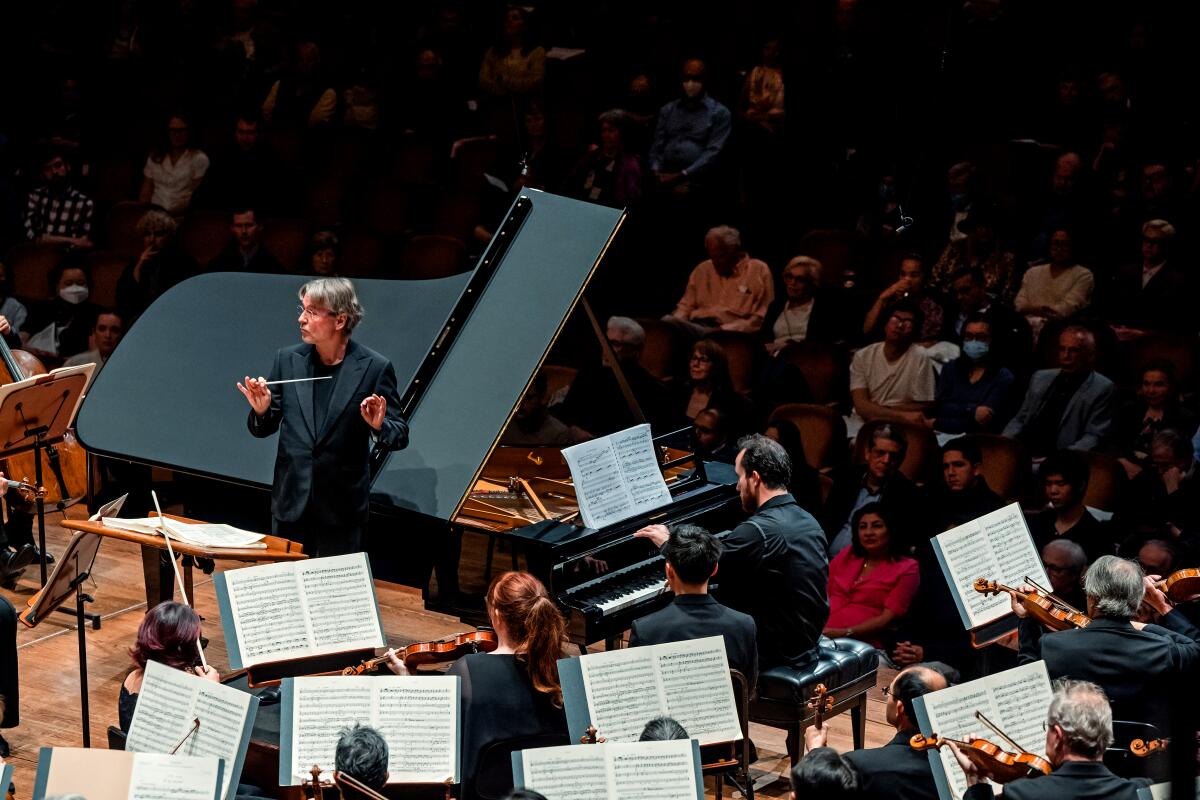This content provides an overview of ten iconic classical music compositions and their significance. It includes works by renowned composers such as Beethoven, Mozart, Bach, Schubert, Tchaikovsky, Vivaldi, Stravinsky, Pachelbel, Wagner, and Debussy. Each composition is described, highlighting their unique qualities, historical context, and emotional impact. These compositions, ranging from symphonies to concertos and operas, have stood the test of time and continue to captivate and inspire audiences worldwide. Classical music has the ability to connect people across generations and cultures, making these pieces timeless and cherished.
1. Ludwig van Beethoven – Symphony No. 9
Beethoven’s Symphony No. 9, also known as the Choral Symphony, is arguably one of the most iconic and influential classical music compositions of all time. Composed in 1824, it stands as a groundbreaking work that redefines the boundaries of symphonic music. The inclusion of a full choir in the final movement, singing the famous “Ode to Joy,” adds a powerful and transcendent element to this masterpiece.
2. Wolfgang Amadeus Mozart – Symphony No. 40
Mozart’s Symphony No. 40, composed in 1788, is a testament to his genius and remains one of the most beloved symphonies in the classical canon. Its dark and brooding nature, coupled with moments of sublime beauty, make it a timeless composition that continues to captivate audiences to this day.
3. Johann Sebastian Bach – Brandenburg Concerto No. 3
Bach’s Brandenburg Concerto No. 3, written around 1721, showcases the composer’s mastery of counterpoint and orchestration. The concerto’s vibrant and energetic movements make it a joyous listening experience that never fails to enthrall audiences.
4. Franz Schubert – Symphony No. 8 “Unfinished”
Schubert’s Symphony No. 8, commonly known as the “Unfinished Symphony,” remains an enigma in the classical music world. With only two completed movements, Schubert’s haunting melodies and rich harmonies create an atmosphere of unresolved beauty that has intrigued and inspired listeners since its composition in 1822.
5. Pyotr Ilyich Tchaikovsky – Symphony No. 5
Tchaikovsky’s Symphony No. 5, written in 1888, is a deeply emotional and introspective work. The contrast between the intense and turbulent first movement and the triumphant finale showcases Tchaikovsky’s ability to evoke a wide range of emotions within a single composition.
6. Antonio Vivaldi – The Four Seasons
Vivaldi’s Four Seasons, a set of four violin concertos composed in the 1720s, is a timeless depiction of each season’s distinct characteristics. From the vigorous Spring to the gentle Winter, Vivaldi’s virtuosic writing and vivid musical imagery have made The Four Seasons a perennial favorite.
7. Igor Stravinsky – The Rite of Spring
Stravinsky’s The Rite of Spring, premiered in 1913, caused a scandalous uproar during its debut performance. With its revolutionary use of rhythm, dissonance, and unconventional orchestration, The Rite of Spring remains a groundbreaking and influential composition that pushed the boundaries of classical music.
8. Johann Pachelbel – Canon in D
Pachelbel’s Canon in D, composed in the late 17th century, has become an enduring symbol of beauty and serenity in classical music. Its simple yet captivating melody, accompanied by its intricate harmonic progression, has made it a popular choice for weddings and other special occasions.
9. Richard Wagner – Tristan und Isolde
Wagner’s Tristan und Isolde, a revolutionary opera composed in the mid-19th century, defies conventional structures and explores profound emotional depths. The opera’s lush and passionate music, combined with its exploration of love, desire, and death, makes Tristan und Isolde an unforgettable experience.
10. Claude Debussy – Clair de Lune
Debussy’s Clair de Lune, part of his Suite bergamasque composed in 1890, exudes ethereal beauty and tranquility. The delicate and shimmering piano melody, reminiscent of moonlight, transports listeners to a dreamlike state, solidifying its place as one of the most cherished and timeless classical compositions.
Classical music has the power to transcend time, bringing together generations of music lovers to appreciate these masterpieces. Whether it be the majesty of Beethoven’s Symphony No. 9, the poetic elegance of Mozart’s Symphony No. 40, or the evocative nature of Debussy’s Clair de Lune, these ten unforgettable compositions continue to inspire and move audiences across the globe.
